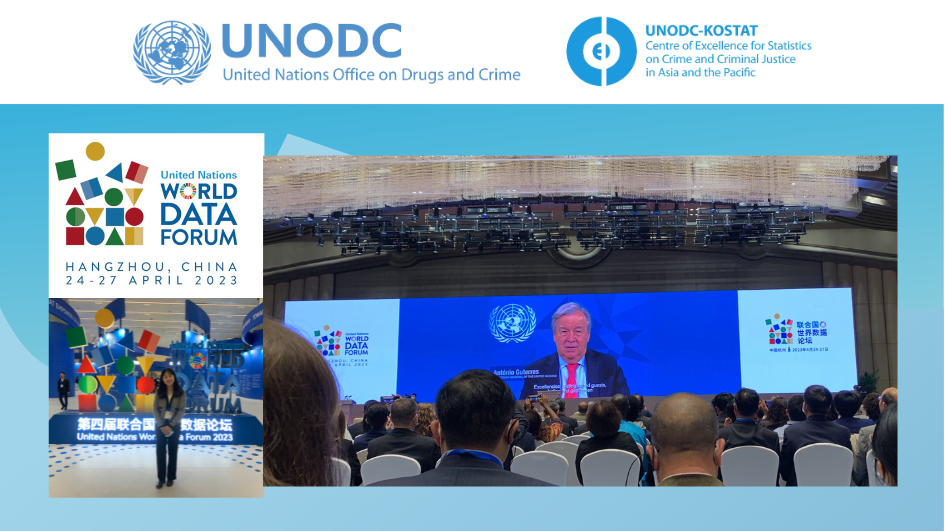
Hangzhou (China), 24-27 April 2023 - The fourth UN World Data Forum was held in Hangzhou, China from 24 to 27 April, hosted by the National Bureau of Statistics of China and the People’s Government of Zhejiang Province. The 2023 UNWDF addressed four main Thematic Areas (TAs), gathering data actors from government, civil society, private sector, international and regional agencies, and academia.
The CoE has participated in the UNWDF since 2021, as a regional knowledge hub on crime and criminal justice statistics in Asia and the Pacific. At the previous forum, the CoE organized a session and discussed emerging trends and innovations in data collection systems, especially in real-time crime data collection.
Following the previous engagement in the 2021 UNWDF, the CoE also attended the 2023 UNWDF and built insight into what challenges and practices that Member States and other data communities have been facing and enhanced knowledge and networks to elaborate on our support to the region. The following list is the relevant sessions to the CoE as a potential field to work on.
The CoE will continuously participate in the UN World Data Forum and contribute to the international data communities for achieving sustainable development goals, particularly in the area of crime and criminal justice.
Further information on the CoE can be found here, Twitter @CoE_UNODC and Facebook @UNODC.KOSTAT.CoE.